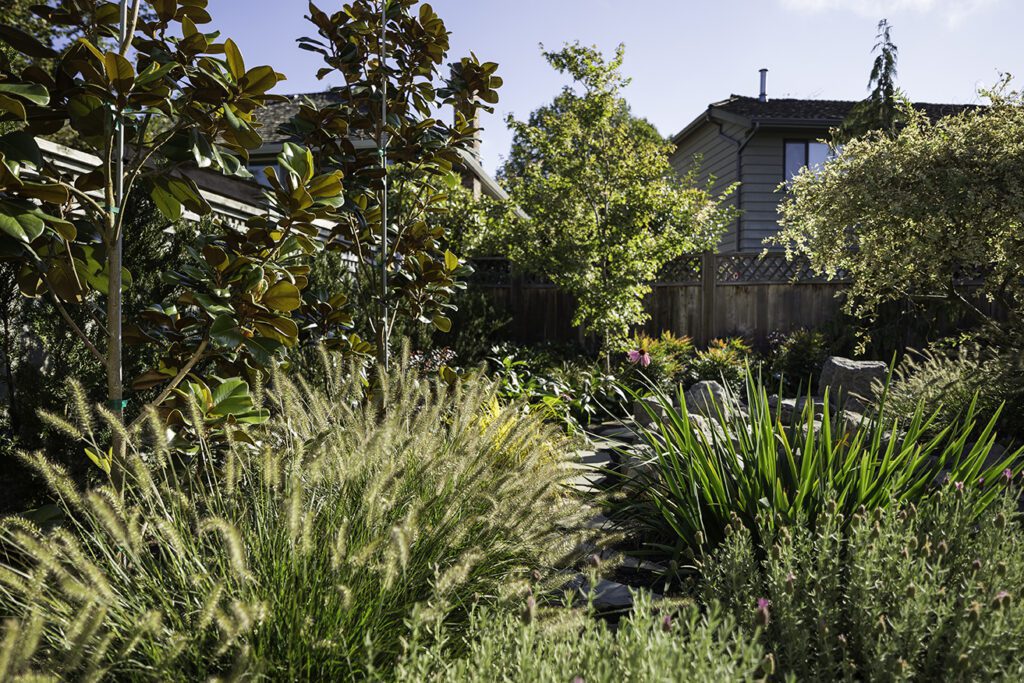Sustainable landscaping is more than a trend—it’s the future. In 2025, eco-friendly practices are becoming more efficient, visually appealing, and widely adopted. Here are key trends shaping green landscaping.
1. Native and Drought-Tolerant Plants
Using native plants reduces water use and supports local wildlife. In BC, sword ferns, salal, and Pacific dogwood thrive naturally, making them excellent choices.
2. Smart Water Management
Rainwater harvesting and smart irrigation systems are minimizing water waste. Drip irrigation, moisture sensors, and automated watering schedules help optimize plant hydration.
3. Regenerative Landscaping
This approach improves soil health and biodiversity. Techniques like no-dig gardening, composting, and permaculture create self-sustaining landscapes that restore the environment.
4. Permeable Paving and Green Infrastructure
Porous materials like gravel and permeable pavers reduce runoff, while rain gardens and green roofs naturally manage stormwater.
5. Organic and Chemical-Free Landscaping
Homeowners are choosing natural fertilizers and pest control methods like companion planting and beneficial insects over synthetic chemicals.
6. Wildlife-Friendly Gardens
Bird-friendly plants, pollinator gardens, and water sources provide essential habitats for local wildlife, creating thriving ecosystems in backyards.
7. Sustainable Hardscaping
Reclaimed wood, recycled stone, and locally sourced materials add beauty while reducing environmental impact.
8. Edible Landscaping
Integrating food-producing plants, raised garden beds, and fruit trees enhances aesthetics while promoting self-sufficiency.
The Future of Green Landscaping
Eco-friendly landscapes are resilient, low-maintenance, and beneficial to the environment. Ready to create one? Call us at 604.447.4440 or visit our contact page to get started.
